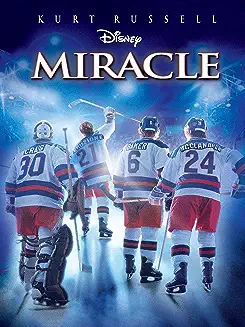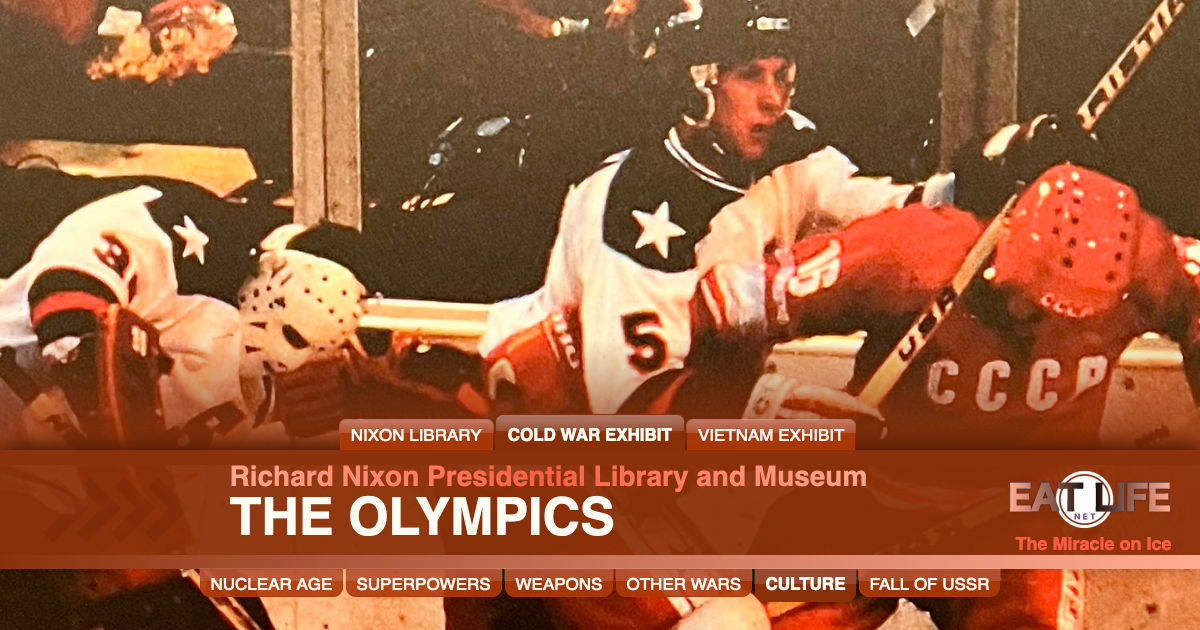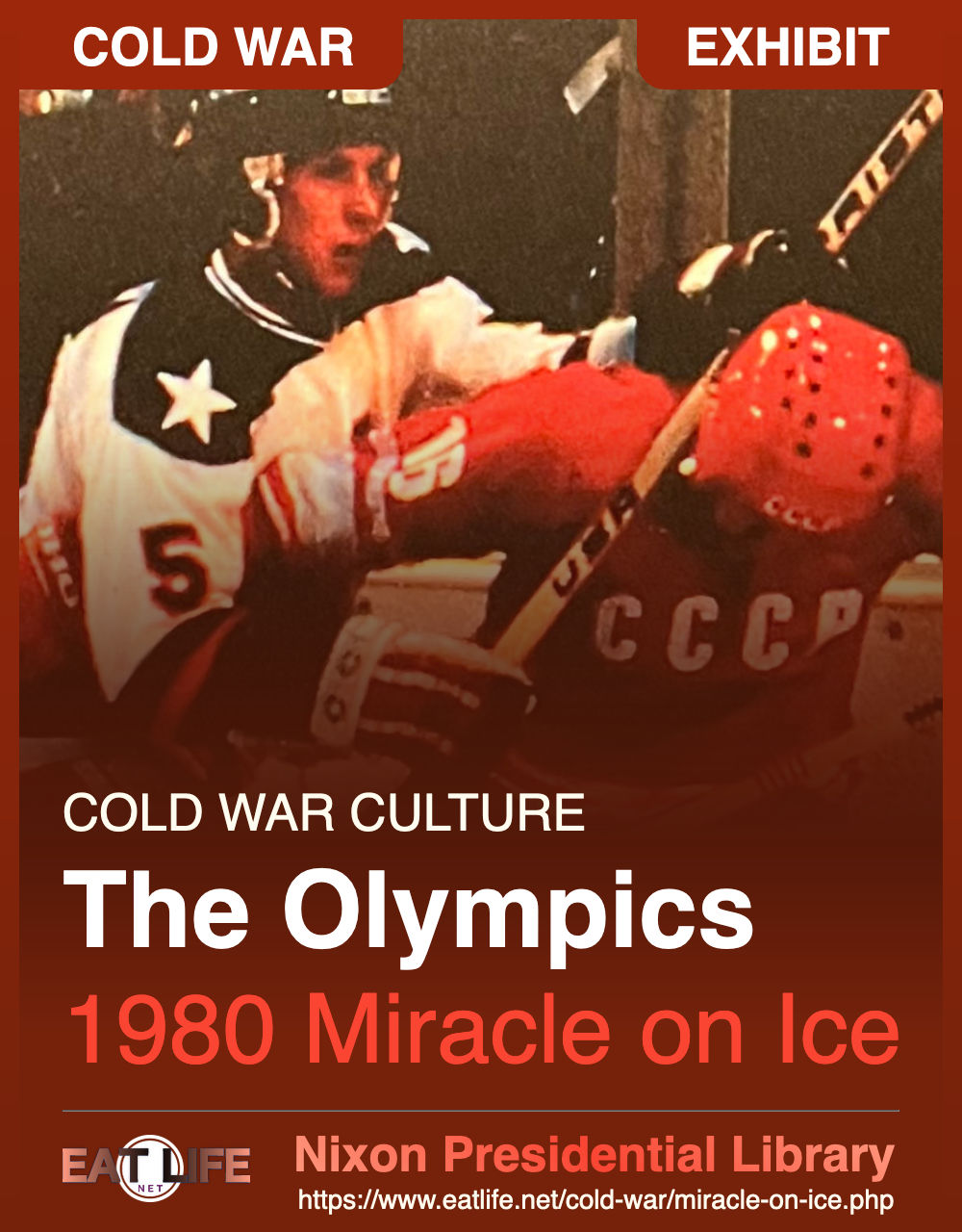During the Cold War, however, the Olympics became an ongoing battleground between the Soviet Union and its client states and the United States and its western allies.
Athletes competing in the games had to be amateurs. In basketball, for example, professional players from the National Basketball League could not compete for Team USA.
Yet athletes from the Soviet Union and its communist allies, which did not have professional sports leagues, were fully supported by their governments as if their sport was their job. Many believe that this provided the athletes from the Soviet bloc with an unfair advantage.
Sports where athletes were awarded points for their performance, such as gymnastics and diving, often saw judges from communist countries award their athletes higher scores than did the other judges on the panel and lower scores to athletes from western countries.
The rivalry between West and East heightened a sense of national pride on both sides during the games. The 1980 Winter Olympic games, held in Lake Placid, New York, saw this rivalry played out like never before. Hockey players tested their mettle in the Olympic Fieldhouse, built especially for the ice hockey tournament.
The goal of Olympism is to place sport at the service of the harmonious development of humankind, with a view to promoting a peaceful society concerned with the preservation of human dignity.
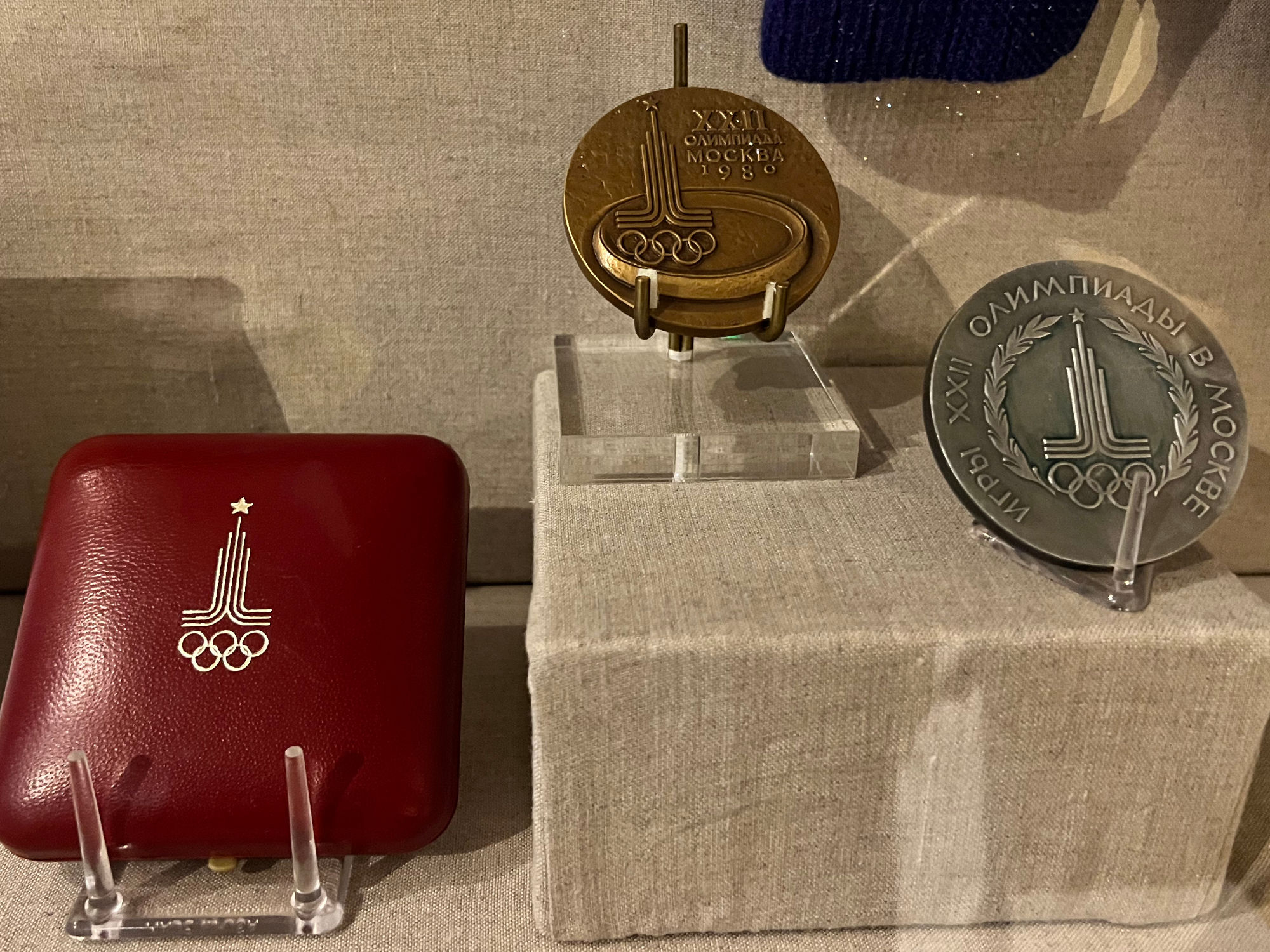
- These aluminum and bronze-colored medals were personal items of Leonid Brezhnev, and were given out during the 1980 Moscow Olympics.
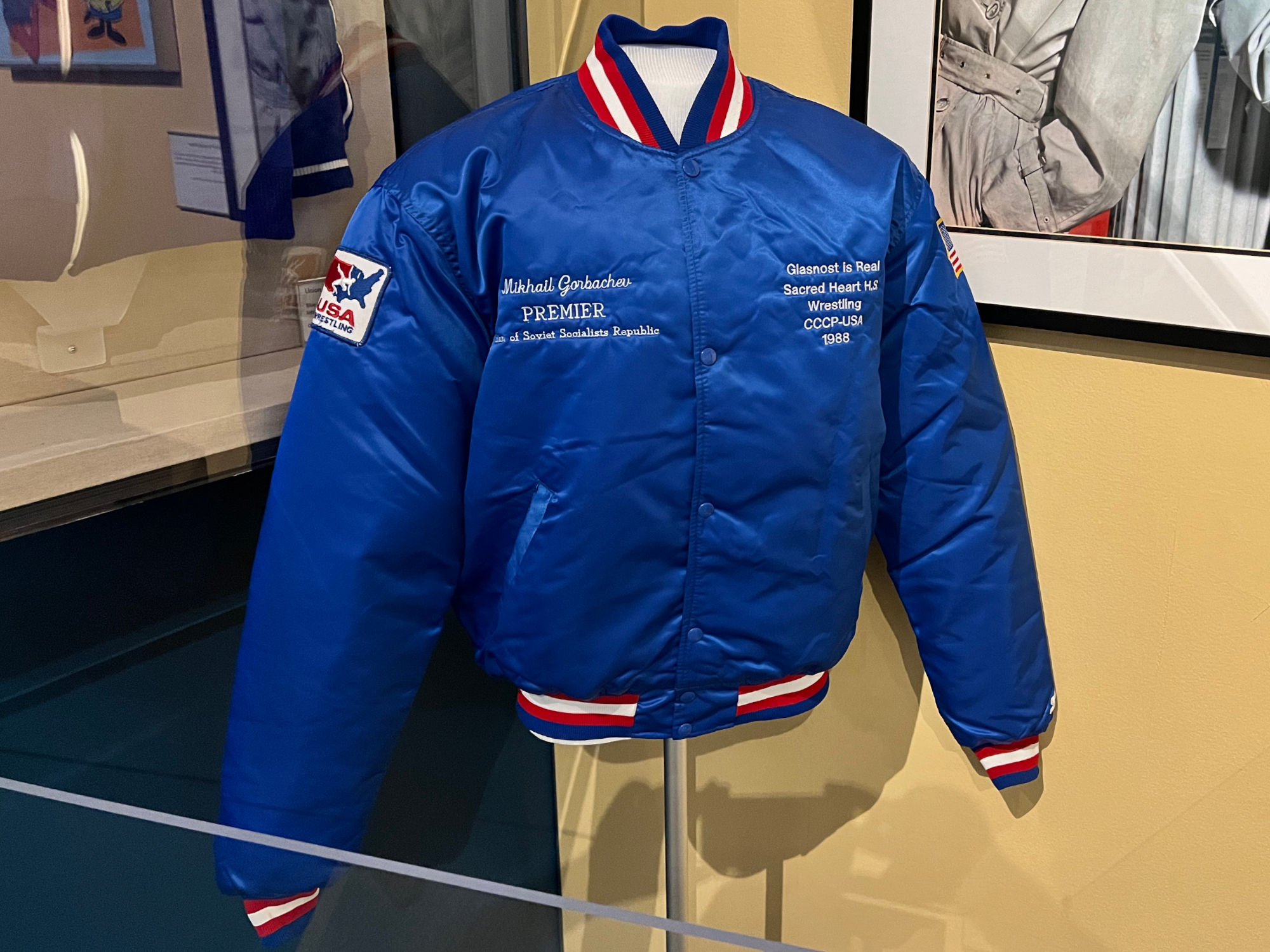
- This blue satin wrestling jacket reads, "Mikhail Gorbachev, Premier, USSR, Glasnost is Real, Sacred Heart H.S., Wrestling CCCP-USA 1988."
When the games began, the American team, consisting entirely of amateurs, were considered underdogs. Yet in the first stage of the tournament, both Team USA and the Soviet team were unbeaten. The two teams would face-off against each other in the first game of the medal round.
The Olympic Fieldhouse was packed with American fans cheering on Team USA. The two teams were tied, 2-2, at the end of the first period. The Soviets ended the second period ahead, 3-2. But the Americans battled back to win the game, scoring two goals in the third and final period while holding the Soviets scoreless.
The Fieldhouse shook to the rafters, while across the United States people glued to the TV sets heard ABC-TV announcer Al Michaels exclaim, "Do you believe in miracles?! YES!"
The United States went on to defeat Finland, securing the gold medal. The Soviets had to settle for silver.
Team USA's victory came at a particularly tense time in the Cold War when American power and prestige seemed on the wane. Defeating the Soviet Union was a real morale boost for Americans from coast to coast, ice hockey fans or not. In 1999, Sports Illustrated called the "Miracle on Ice" the 20th century's top sports moment.
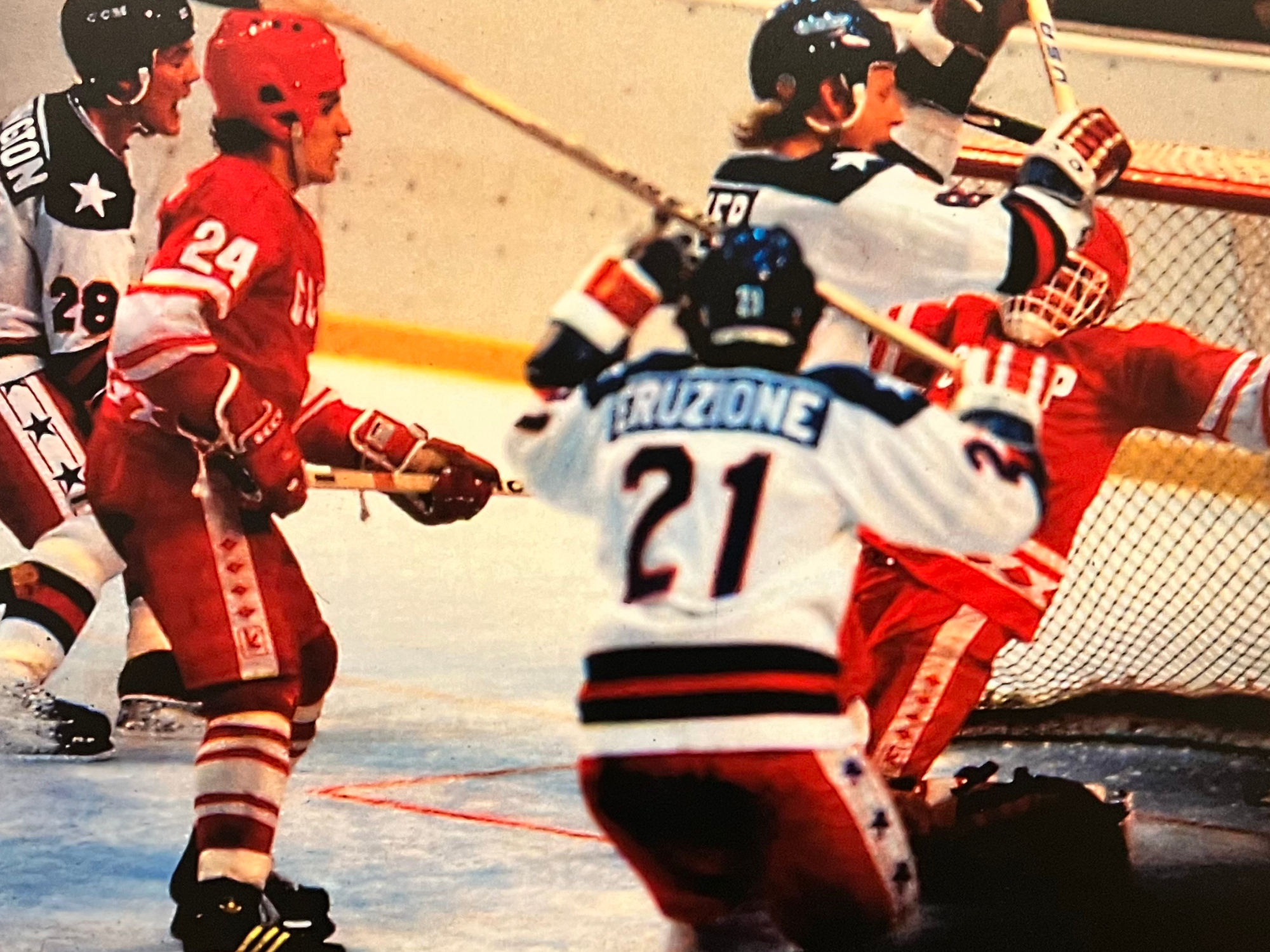
- U.S. Men's Hockey players Mike Eruzione and John Harrington raise their hands in triumph after Team USA scores a goal against the Soviet Union.
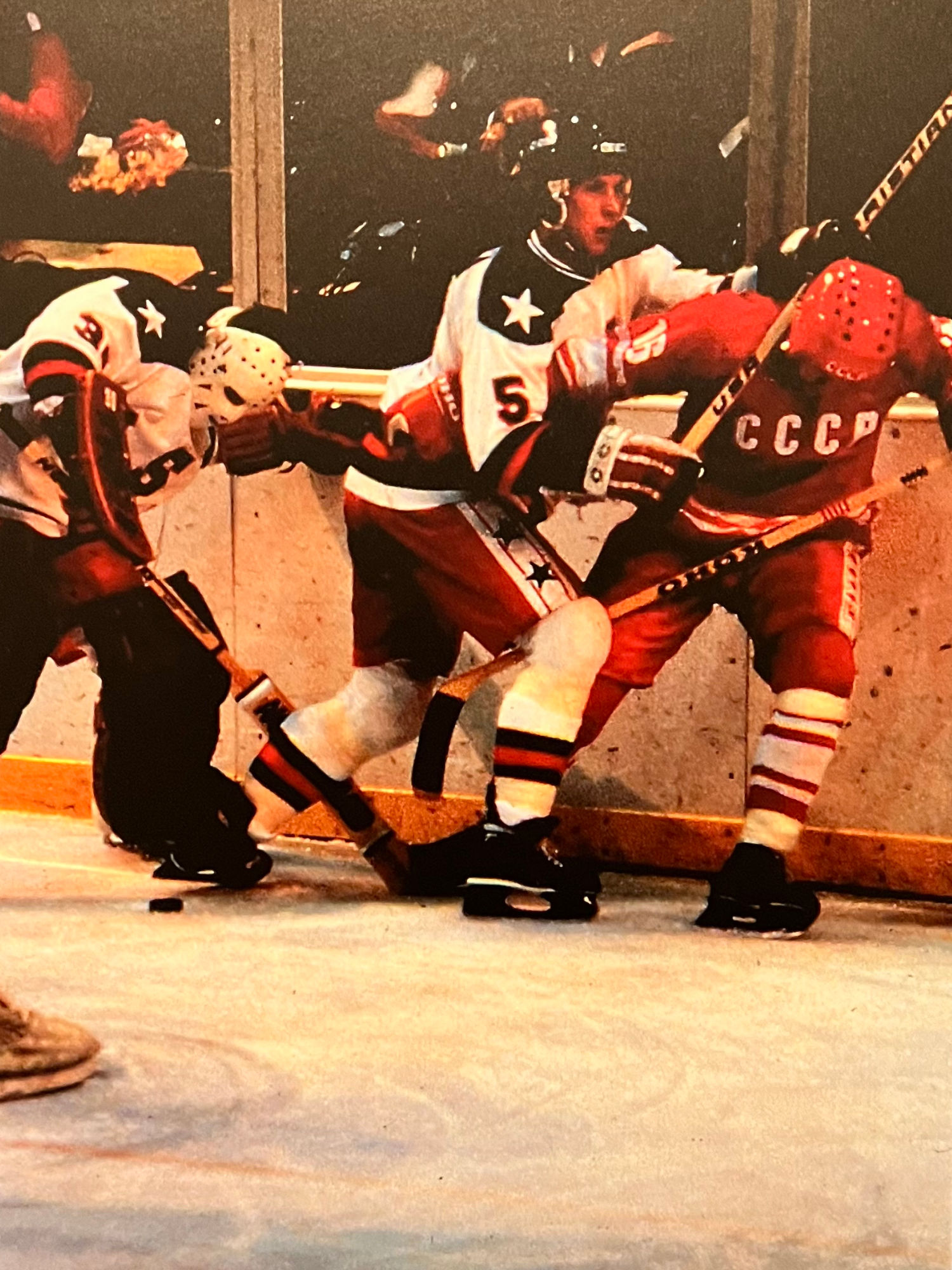
- Up against the boards, Mike Ramsey battles with a member of the Soviet hockey team for control of the puck.
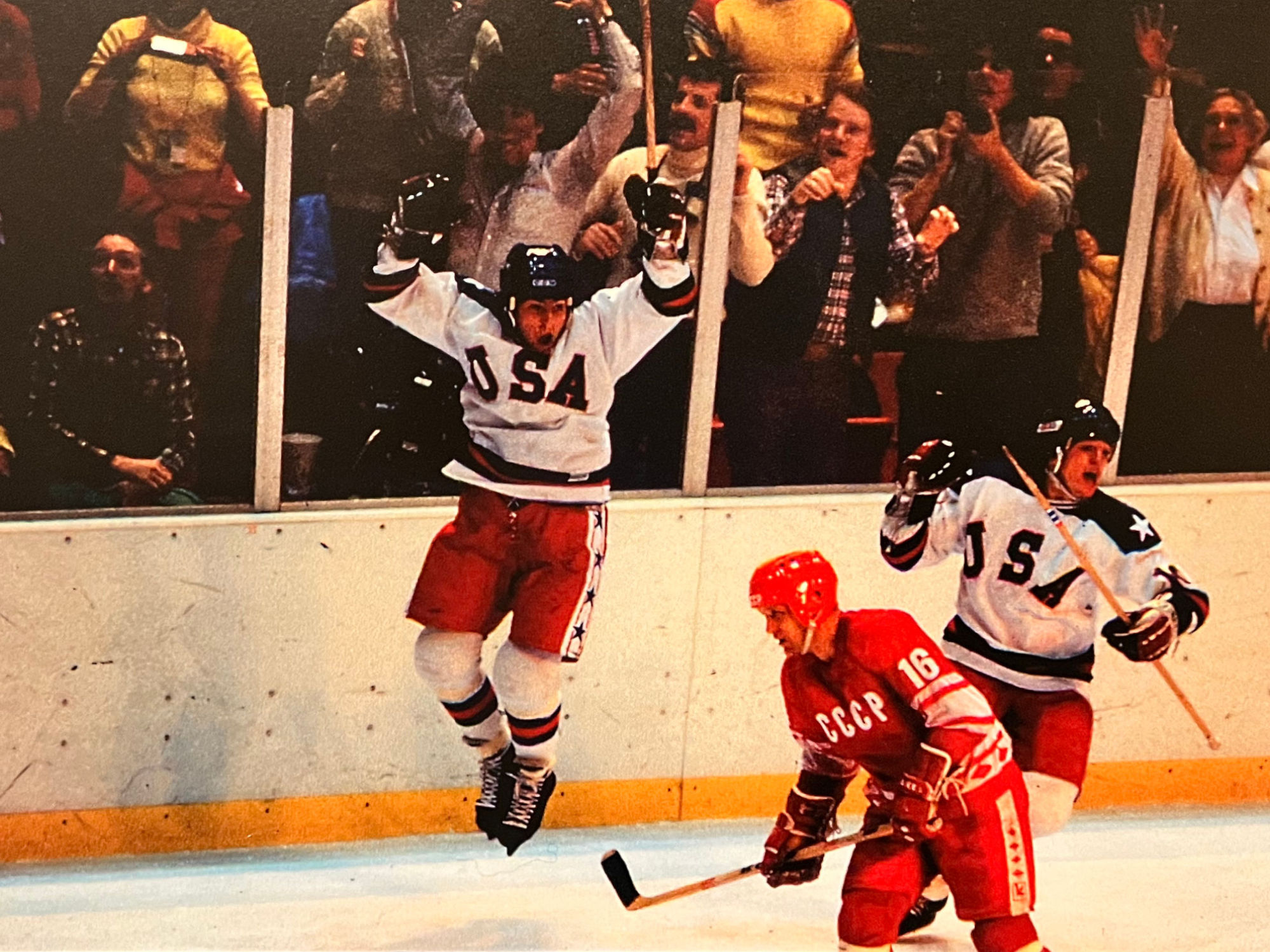
- The U.S. Men's Hockey Team jumps for joy after an unlikely victory over the Soviet Union at the 1980 Lake Placid Winter Olympics.
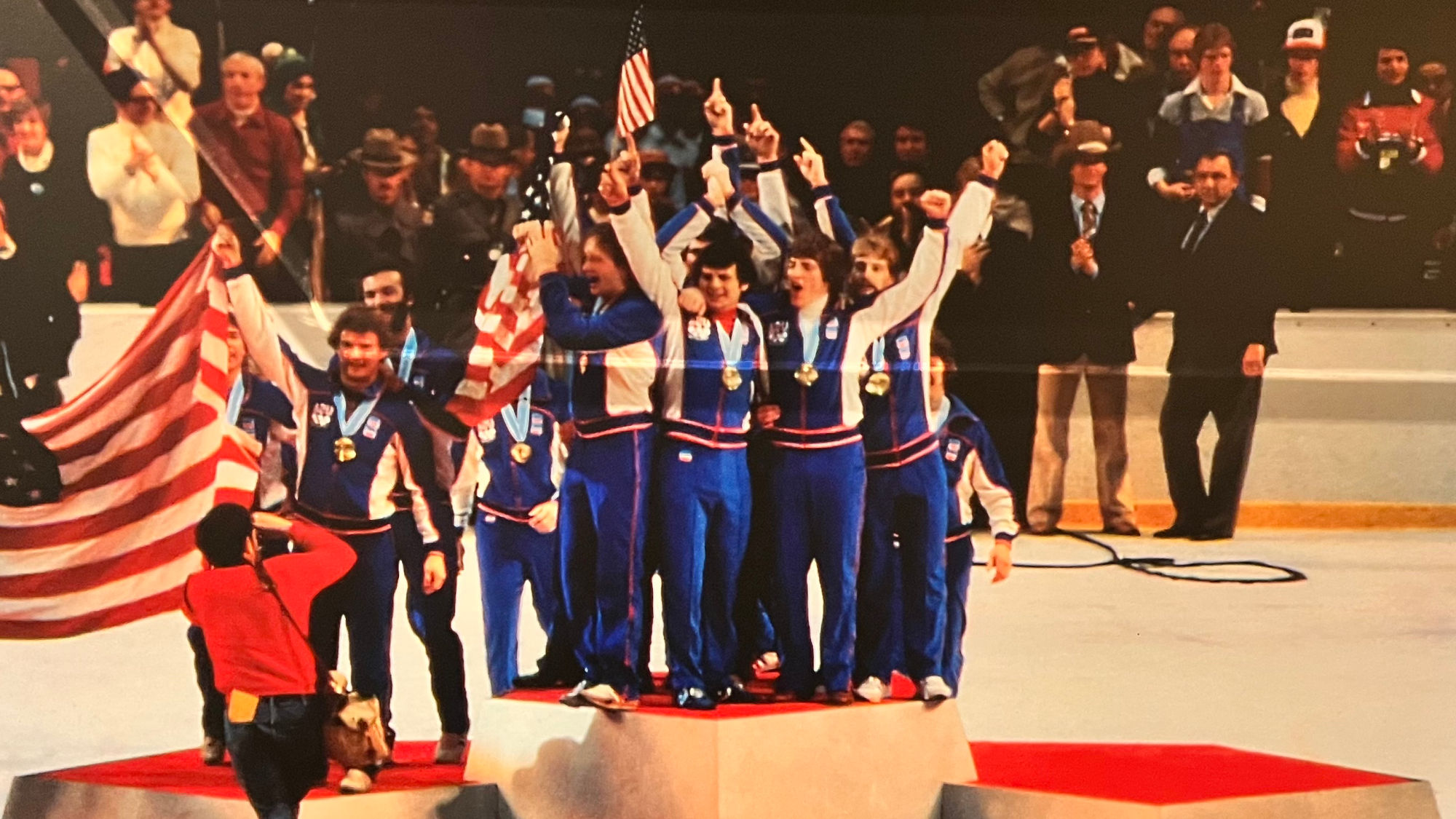
- The members of Team USA Men's Hockey Team celebrate their victory atop the podium at the 1980 Winter Olympics in Lake Placid, New York.
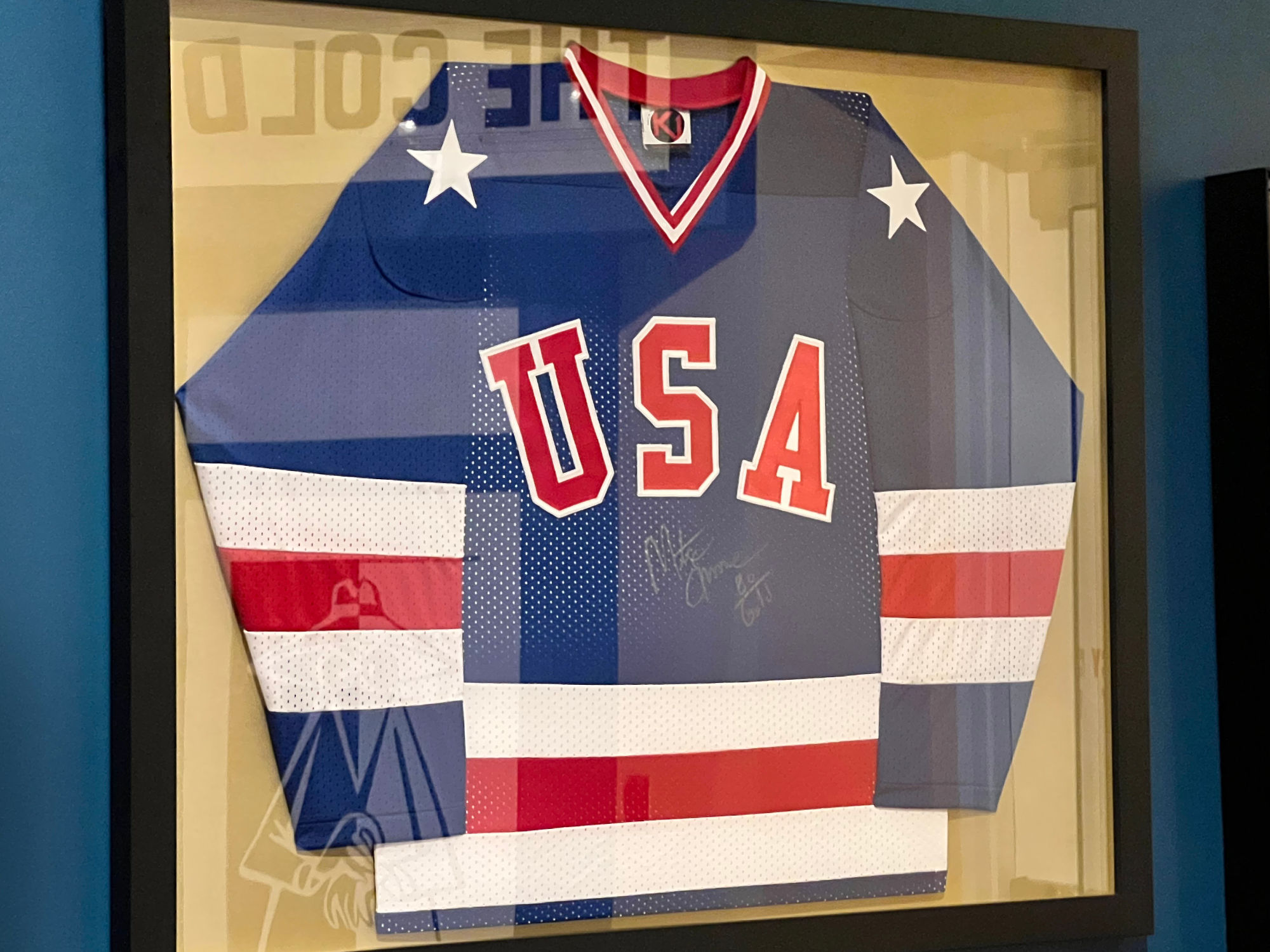
- This signed blue jersey features the letters "USA" in red and white fabric, along with red and white stripes on the sleeves and torso.
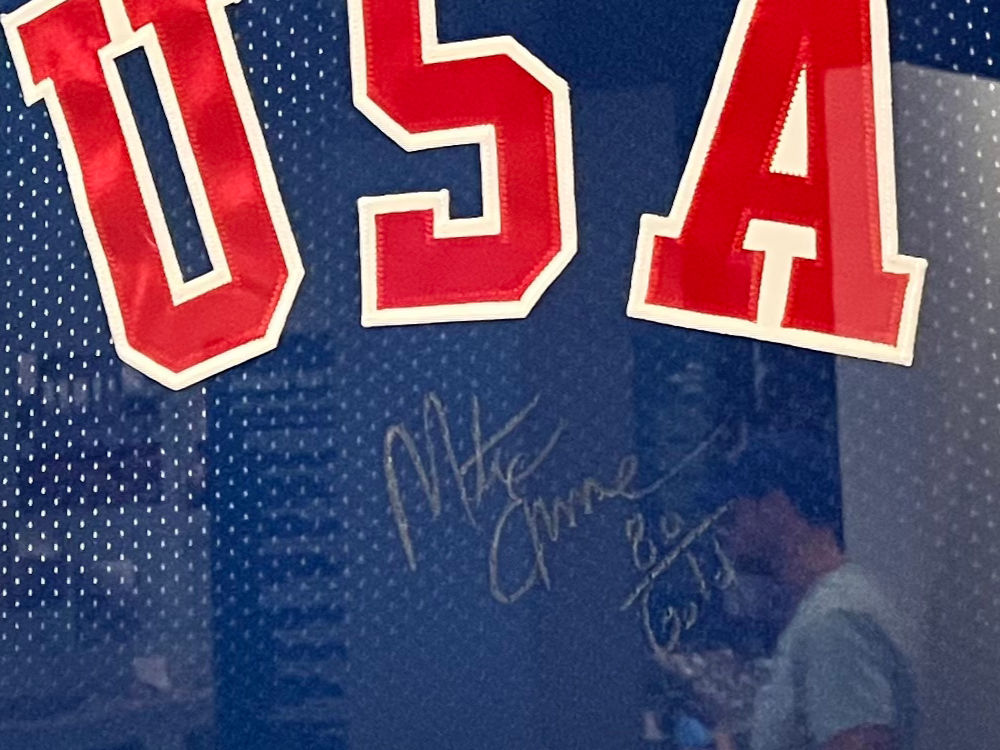
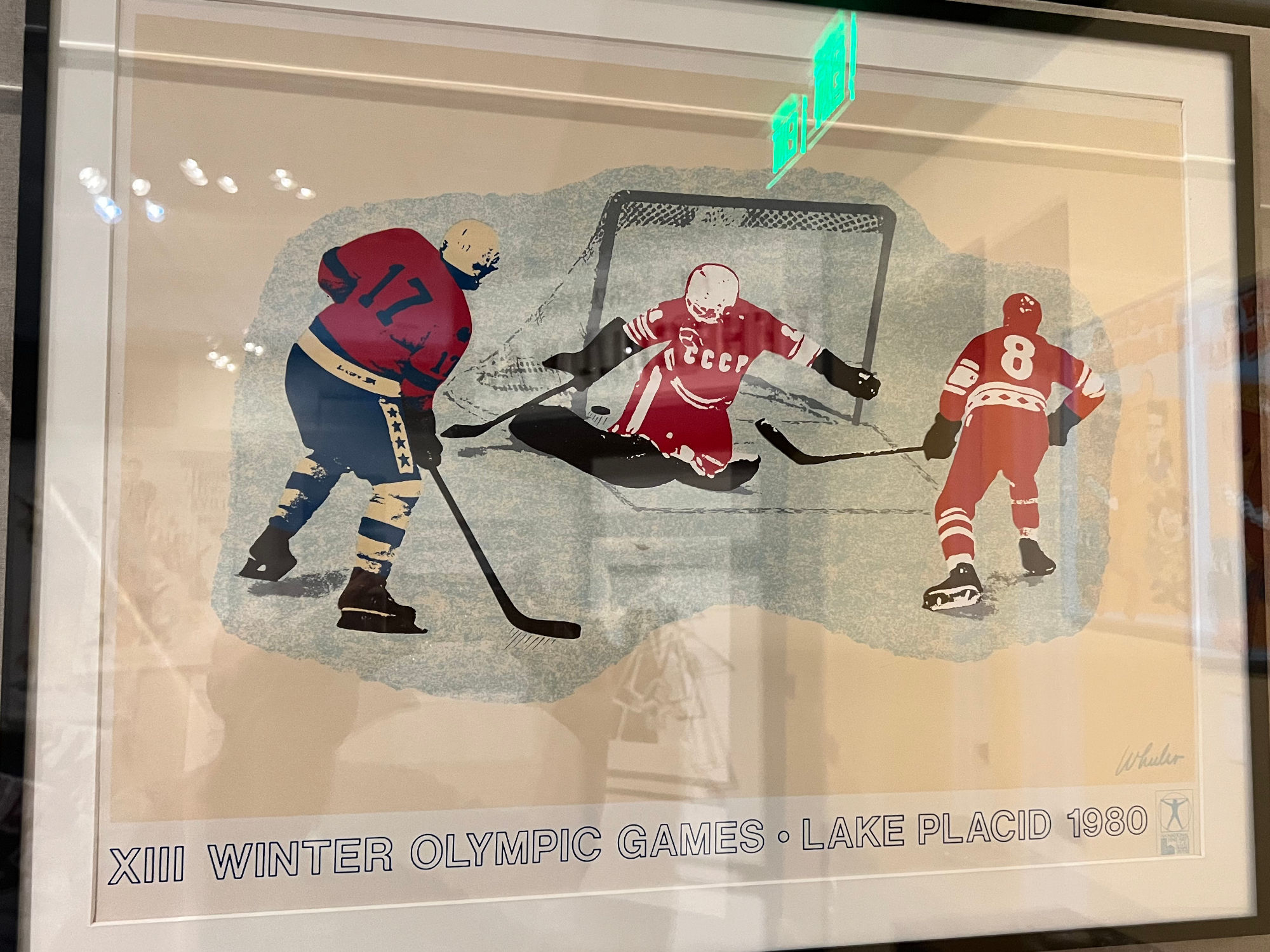
- This drawing depicts a goal being scored during the "Miracle on Ice" hockey game at the 1980 Olympics.
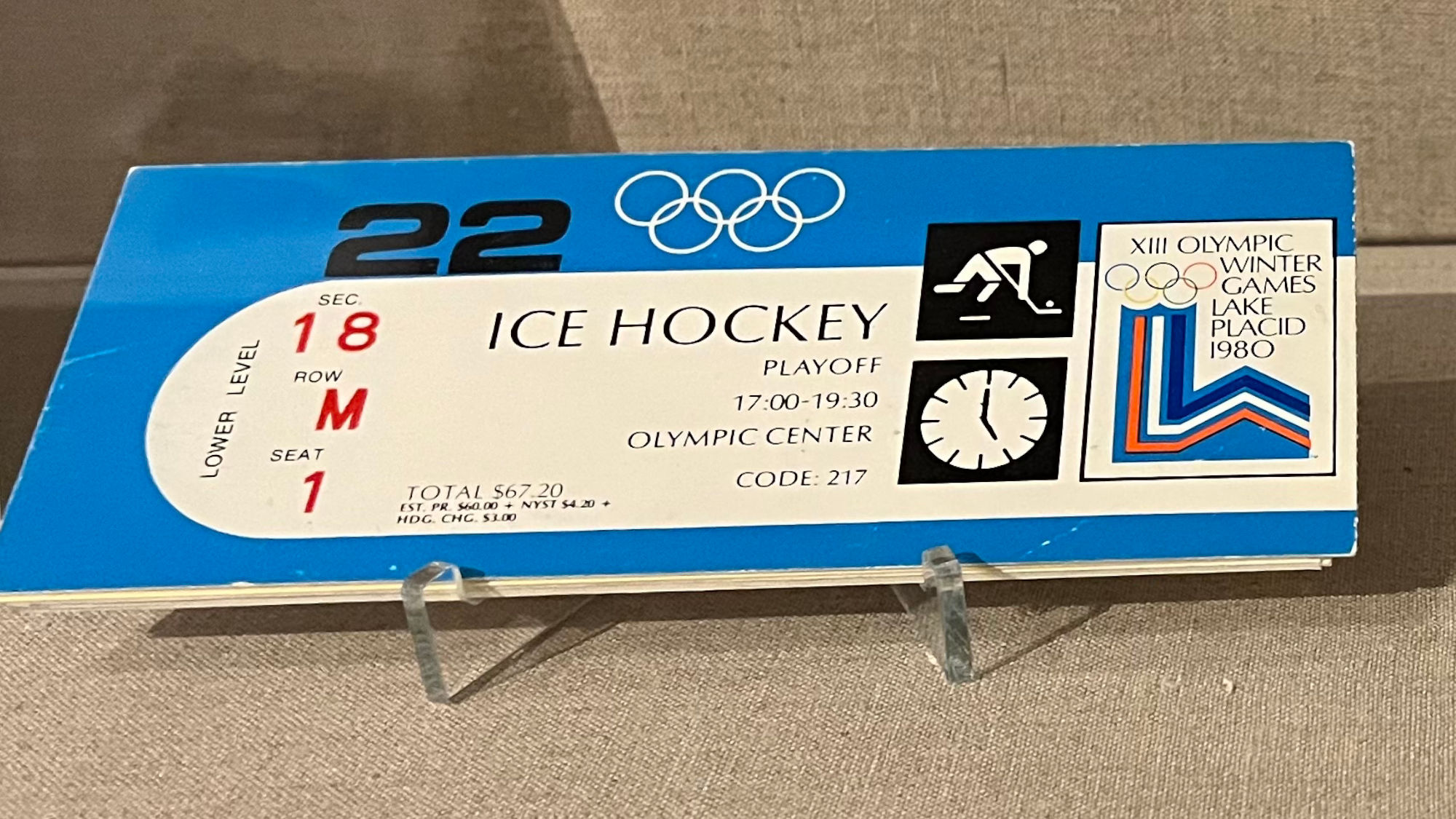
- These tickets were issued for a series of hockey games held at the XIII Olympic Winter Games. They feature a Lake Placid 1980 emblem on the right-hand side.
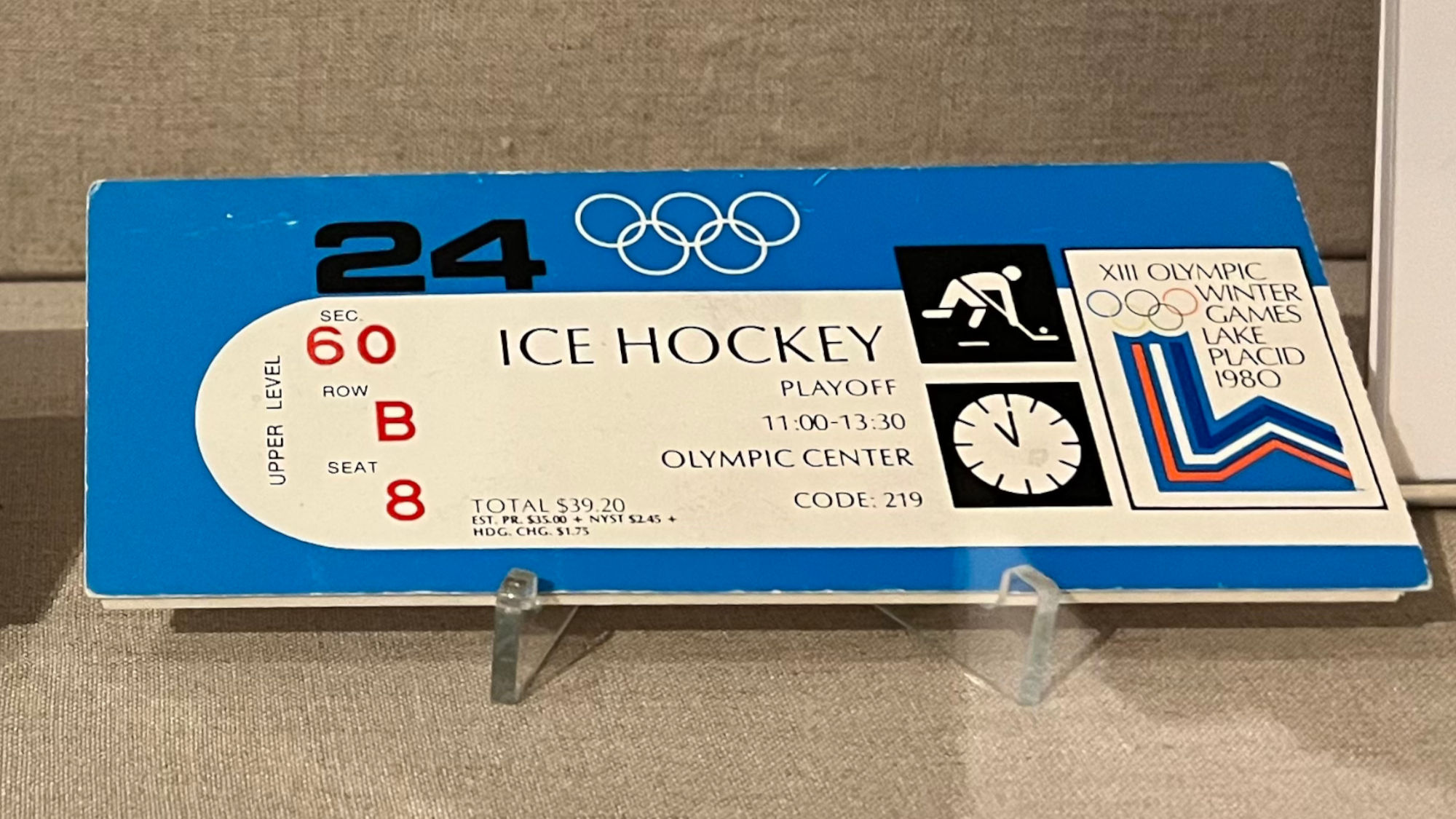
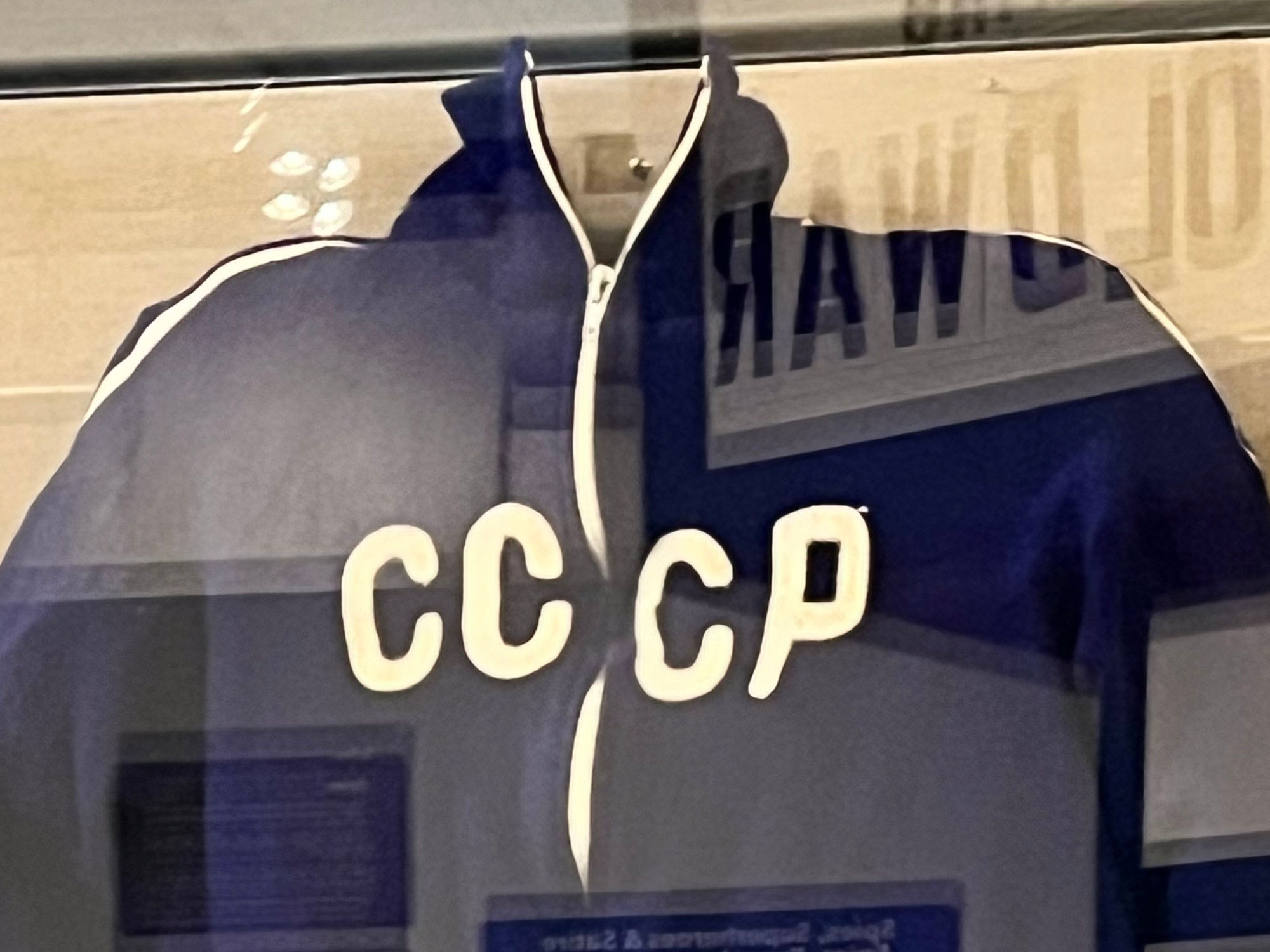
History.comThe Miracle on Ice
In one of the most dramatic upsets in Olympic history, on February 22, 1980, the underdog U.S. hockey team, made up of college players, defeats the four-time defending gold-medal winning Soviet team at the XIII Olympic Winter Games in Lake Placid, New York. The Soviet squad, previously regarded as the finest in the world, fell to the youthful American team 4-3 before a frenzied crowd of 10,000 spectators. Two days later, the Americans defeated Finland 4-2 to clinch the hockey gold.The Soviet team had captured the previous four Olympic hockey golds, going back to 1964, and had not lost an Olympic hockey game since 1968. Three days before the Lake Placid Games began, the Soviets routed the U.S. team 10-3 in an exhibition game at Madison Square Garden in New York City. The Americans looked scrappy, but few blamed them for it-their average age, after all, was only 22, and their team captain, Mike Eruzione, was recruited from the obscurity of the Toledo Blades of the International League.
Few had high hopes for the seventh-seeded U.S. team entering the Olympic tournament, but the team soon silenced its detractors, making it through the opening round of play undefeated, with four victories and one tie, thus advancing to the four-team medal round. The Soviets, however, were seeded No. 1 and as expected went undefeated, with five victories in the first round.
On Friday afternoon, February 22, the American amateurs and the Soviet dream team met before a sold-out crowd at Lake Placid. The Soviets broke through first, with their new young star, Valery Krotov, deflecting a slap shot beyond American goalie Jim Craig's reach in the first period. Midway through the period, Buzz Schneider, the only American who had previously been an Olympian, answered the Soviet goal with a high shot over the shoulder of Vladislav Tretiak, the Soviet goalie.
The relentless Soviet attack continued as the period progressed, with Sergei Makarov giving his team a 2-1 lead. With just a few seconds left in the first period, American Dave Christian shot the puck down the ice in desperation. Mark Johnson picked it up and sent it into the Soviet goal with one second remaining. After a brief Soviet protest, the goal was deemed good, and the game was tied.
In the second period, the irritated Soviets came out with a new goalie, Vladimir Myshkin, and turned up the attack. The Soviets dominated play in the second period, outshooting the United States 12-2, and taking a 3-2 lead with a goal by Alesandr Maltsev just over two minutes into the period. If not for several remarkable saves by Jim Craig, the Soviet lead would surely have been higher than 3-2 as the third and final 20-minute period began.
Nearly nine minutes into the period, Johnson took advantage of a Soviet penalty and knocked home a wild shot by David Silk to tie the contest again at 3-3. About a minute and a half later, Mike Eruzione, whose last name means “eruption” in Italian, picked up a loose puck in the Soviet zone and slammed it past Myshkin with a 25-foot wrist shot. For the first time in the game, the Americans had the lead, and the crowd erupted in celebration.
There were still 10 minutes of play to go, but the Americans held on, with Craig making a few more fabulous saves. With five seconds remaining, the Americans finally managed to get the puck out of their zone, and the crowd began counting down the final seconds. When the final horn sounded, the players, coaches, and team officials poured onto the ice in raucous celebration. The Soviet players, as awestruck as everyone else, waited patiently to shake their opponents' hands.
The so-called Miracle on Ice was more than just an Olympic upset; to many Americans, it was an ideological victory in the Cold War as meaningful as the Berlin Airlift or the Apollo moon landing. The upset came at an auspicious time: President Jimmy Carter had just announced that the United States was going to boycott the 1980 Summer Games in Moscow because of the Soviet invasion of Afghanistan, and Americans, faced with a major recession and the Iran hostage crisis, were in dire need of something to celebrate. After the game, President Carter called the players to congratulate them, and millions of Americans spent that Friday night in revelry over the triumph of “our boys” over the Russian pros.
WIKIPEDIAThe Miracle on Ice
An ice hockey game during the 1980 Winter Olympics in Lake Placid, New York. It was played between the hosting United States and the Soviet Union on February 22, 1980, during the medal round of the men's hockey tournament. Though the Soviet Union was a four-time defending gold medalist and heavily favored, the United States upset them and won 4–3.The Soviet Union had won the gold medal in five of the six previous Winter Olympic Games, and they were the favorites to win once more in Lake Placid. The team consisted primarily of full-time players (professional in all but name) with significant experience in international play. By contrast, the United States' team, led by head coach Herb Brooks, was composed mostly of amateur players, with only four players with minimal minor-league experience. The United States had the youngest team in the tournament and in U.S. national team history.
In the group stage, both the Soviet and U.S. teams were unbeaten; the U.S. achieved several surprising results, including a 2–2 draw against Sweden, and a 7–3 upset victory over second-place favorite Czechoslovakia.
For the first game in the medal round, the United States played the Soviets. Finishing the first period tied at 2–2, and the Soviets leading 3–2 following the second, the U.S. team scored two more goals to take their first lead midway in the third and final period, then held on and won 4–3. Two days later, the U.S. won the gold medal by beating Finland in their final game. The Soviet Union took the silver medal by beating Sweden.
The victory became one of the most iconic moments of the Games and in U.S. sports. Equally well-known was the television call of the final seconds of the game by Al Michaels for ABC, in which he declared: "Do you believe in miracles? YES!" In 1999, Sports Illustrated named the "Miracle on Ice" the top sports moment of the 20th century. As part of its centennial celebration in 2008, the International Ice Hockey Federation (IIHF) named the "Miracle on Ice" as the best international ice hockey story of the past 100 years.





